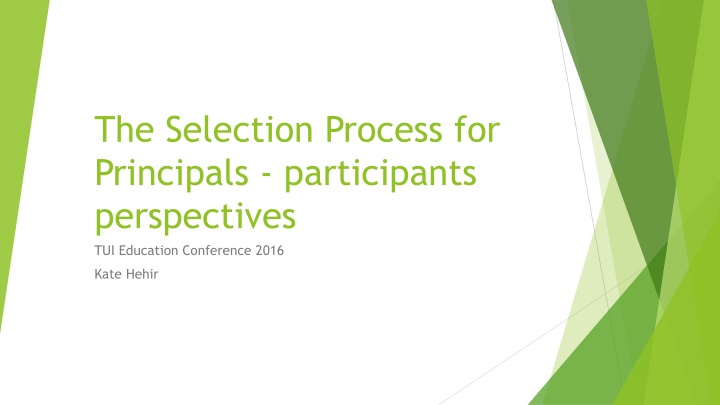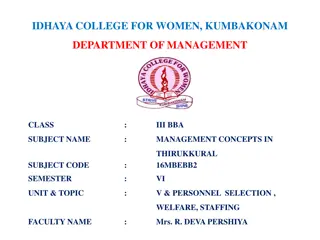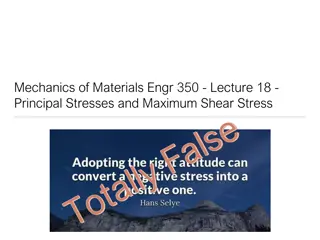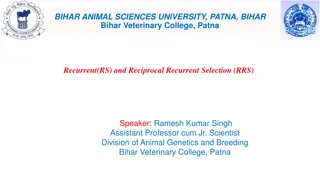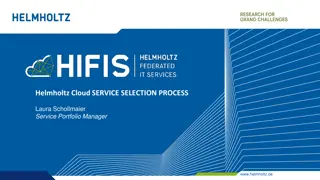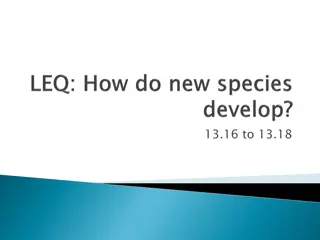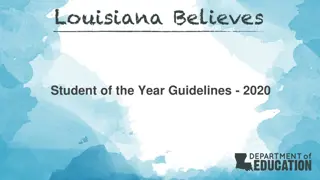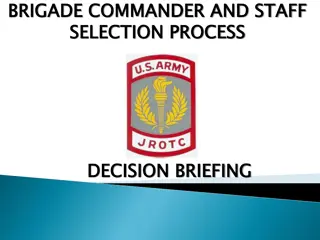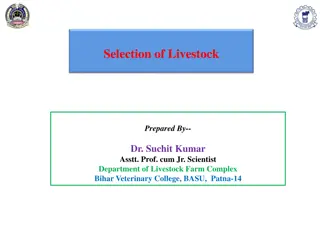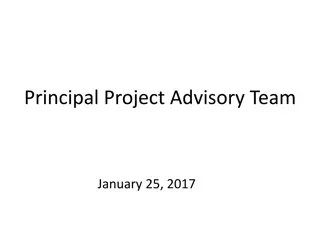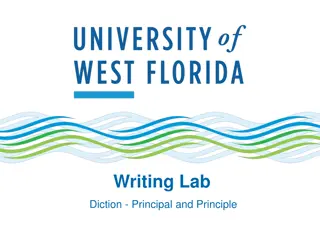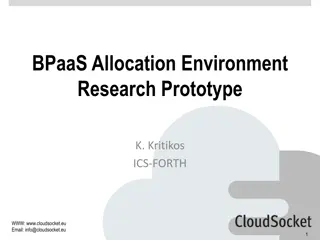Perspectives on Principal Selection Process
Thesis explores issues in the school principal selection process, revealing areas for improvement. Limited research in Irish Education due to topic sensitivity. Methodologies, challenges, and findings discussed.
Download Presentation

Please find below an Image/Link to download the presentation.
The content on the website is provided AS IS for your information and personal use only. It may not be sold, licensed, or shared on other websites without obtaining consent from the author.If you encounter any issues during the download, it is possible that the publisher has removed the file from their server.
You are allowed to download the files provided on this website for personal or commercial use, subject to the condition that they are used lawfully. All files are the property of their respective owners.
The content on the website is provided AS IS for your information and personal use only. It may not be sold, licensed, or shared on other websites without obtaining consent from the author.
E N D
Presentation Transcript
The Selection Process for Principals - participants perspectives TUI Education Conference 2016 Kate Hehir
Introduction Based on Thesis and Paper submitted for a Masters in Education Leadership 2013 Revealed issues in the formerly known VEC selection process for selecting school principals & the potential areas for improvement To note: research on examining hiring practices in Irish Education is limited and is partly due to the high level of sensitivity around the nature of the topic
Background to selection process Involves application process in response to advertising of post VEC(Now ETB) select panel members- from Board Set marking scheme, design questions & meet to have a pre-interview discussion Interview itself & final decision Cir 43/00 and IVEA(2004) suggest a panel of experts be chosen for selection process DES and IVEA(2004) guidelines for composition of selection boards recommending training for members ETB Act 2013 now governs selection process
Limiting Factors to Research Being solely based on VEC itself Scale of research would have been too large to include Vol. Sec. Schools & C & C schools Other research methods could have been used: questionnaires, observation or case study(latter may have been difficult to seek permission) Questionnaires would yield dept & quality in feedback
Methodology Qualitative research Semi-structured interviews flexible & gave opportunity to probe and expand Four groups: CEOs, Panel Members, Successful Candidates(those awarded principalship) and Unsuccessful Candidates Field work was carried out and data processing involved identifying key questions to be analysed, emerging themes and patterns
Issues in Selection Process 1. A narrow focus on what is seen as an expert on a panel 2. Lack of credibility seen towards selection panel members & a desire for panel interview training 3. Instructional leadership styles sought were at odds with OECD (2009) findings 4. Lack of role clarification for prospective principals 5. Lack of understanding on the importance of psychology in interviews 6. A subjective as opposed to an objective method for selecting leaders
Issues cont.. 7. Practical procedural elements seen as unreliable to selection 8. Inconsistencies in selection procedure 9. An unreflective approach to selection & a narrow focus on previous leadership experience 10. A lack of esteem for the contextual needs of schools 11. A lack of transparency in revealing contextual issues in schools at interview 12. A lack of focus on the quality of interviewing
1. A narrow focus on what is seen as an expert on a panel Understanding of concept revealed vagueness seen as in management , in education , experience in role emphasis on practical experience Issue little reference to training, professional knowledge, specialist knowledge or study lack of esteem for professional expertise could question credibility of selectors In contrast -successful candidates themselves had management experience & a Masters valued criterion the latter increasingly important(OECD, 2008) No reference to the expertise of teachers or those outside education OECD(2008) & Clifford (2012) suggest broadening participation in panel members from business world, school stakeholders i.e. parents
2. Instructional leadership styles at odd with OECD findings Participative leadership styles sought by panels followed by instructional & transformational OECD (2009) findings contrast with Ireland being higher in administrative leaders 3. Lack of role clarification for perspective principals No job specification/role clarity(OECD,2007) given issue of transparency could contribute to lack of applications, create uncertainty & vagueness about what a panel look for Role not well defined lack of role clarity time needed to define what is being looked for(Cavazos & Ovando,2012) helps select the best person
4. Lack of credibility seen towards selection panel members & a desire for panel interview training Issues around retired principals knowledge seen as lacking active principals seen as more credible(OECD,2008) experience current demands Desire for nationalised standardised training selectors seen as lacking educational experience , last man..that you should have on a panel , having one job to go through the C.V. Lack of credibility issue of accountability? As of 2013 no Nat. Standardised training 2014 ACCS & ETBI est. a competency based recruitment & selection process with trainers for regions & a resource pack
5. A Lack of understanding on the importance of psychology in interviews Interviewees acknowledged that non-verbal cues could reveal how interview was going by interviewees: they don t look like they are approving , a lot of time was spent staring at the ceiling & at the clock , there was nodding...encouragement Similarly selectors revealed of interviewees: if they couldn't make eye contact, they couldn t communicate , they looked uncomfortable , cues only played a role Non-verbal cues first measurement of any setting (Todorov,2008 & Willis, 2006) Few participants acknowledged the major role it has 55% of interviewers judgement(Mehrabian, 1971) Training needed in this area
6. A subjective as opposed to an objective method for selecting leaders Process seen as subjective , not adequate , limited , one weakness..is the personality side of it , little focus on leadership , clearer role for the principal needed , not saying that there aren't element of it that can be perfected Clifford(2012) reinforces this: leadership ability is hard to gauge , highly prone to effects of biases & prejudices(Puri, 2009) Process revealing inadequacies lacks capacity to select leaders?
7. Practical procedural elements seen as unreliable to selection Preference for larger panel size fairer to interviewee contrasting to DES & IVEA guidelines different expertise reflected , better balance , much more opportunities Lack of time noted one hour is not nearly enough , difficult to decide for in an hour , not enough...for a job they could be doing for the next 20 years Hollenbeck(1994) states that less time allocated to leadership position searches hampers hiring committees Clifford (2012) avers one year should be given to the search from point of vacancy
Short-listing suggested but potential leaders could be ruled out if they lack evidence of previous leadership experience Serious concerns: credibility of process if interview doesn t present suitable candidate do we appoint anybody, go back again & run through the whole process? Or do we make the best of what we have & its a very hard decision to make Process could lack integrity?
8. Inconsistencies in selection procedures Lack of collaboration on designing questions at pre- interview stage disadvantage to school with specific contextual needs IVEA (2004), OECD(2008) guidelines request this Accountability? ignoring regulations introduces vagueness & lack of uniform approach Lack of professionalism shown leadership was not always questioned interviewee had to direct them towards it & final question just to fill a little more time I am going to ask you one more question Integrity?
9. An unreflective approach to selection & a narrow focus on previous leadership Lack of post interview reflection reinforcing unreflective culture there is no clear structure...for the quality of these boards (OECD,2007). Irish education geared towards action rather than reflection or enquiry(Leonard & Gleeson, 1999) & a culture of containment (Callan,1997) Predominant questioning - behavioural assuming past behaviour is likely to predict future behaviour difficult for those that have none Morgan & Sugrue (2005) those that have become principals held key leadership positions in their previous schools
Current issue moratorium on A posts serious impediment OECD, 2007 quality into the future...highlights the need within the system to develop a pool of potential candidates for school leadership 10. A lack of esteem for the contextual needs of schools Contextual needs (issues located in schools internal context) not seen to be a primary prerequisite Cavazos & Ovando (2012) hiring for just principal position & not organisation...hinders the committee s ability to make effective selection decisions
11. A lack of transparency in revealing contextual issues in schools at interview Not evident but when revealed deterred people from applying One interviewee made aware of a very difficult situation during interview stopped selling them self at that point OECD, 2007 affirms decline in applications related to schools perceived to be in difficult situations Morgan & Sugrue,2005 over half of principals have had training preparation for role before appointment System not empowering to face challenges potential specialist programmes could be completed
Interviewees required in many countries to complete leadership speciality programmes before being considered(Taipale, 2012) Canada Principals Qualification programme Finland - prior experience from supervisory duties Scotland Scottish Qualification for Headship
12. A lack of focus on the quality of interviewing Quality of interviews was not observed by interviewees Interviewees more focused on comfort levels than competencies as potential leaders Reason selectors not making expectations and criteria for principal selection explicit Again - lack of role clarification
Standardised training for panel Leadership Development More Time Cyclical Leadership Probation system Improvements Role Panel Review Clarification Pre- Shortlisting interview strategies Larger Panels
Notable opportunities for change Cyclical leadership & probation system Suggested by some of the interviewees recc. by OECD, 2008 a minimum tenure subject to performance renewable fixed term contracts Belgium evaluation every 5 years New York 3 years probation before licence given Finland 6 month trial Establishes suitability to position Standardised training for panel selectors Training for selectors and ensuring mandatory participation
Induction for principals Situational placements suggested give potential candidates & selectors opportunity to clearly evaluate their potential Australia Principals Internship Programme requires aspiring teachers to participate in internships Pre-interviews suggested could also establish suitability Leadership development in schools for potential leaders Lifting the moratorium on posts of responsibility Encouraging teachers to participate in leadership courses Pre-service training not just courses provided by LDS for existing principals
Conclusion There was indistinctness about what constituted expertise Ambiguity about professional knowledge & service to a system where professional leadership among teachers is not always cultivated Lack of consistency in approach; lack of precision with significant departures from stated guidelines Unreflective & subjective nature flowing through veins of process Need for greater injection of training for panels, for research & cultivation of expertise suitable for interviewing process
There are key opportunities for change Failure to improve the process will most likely lead to inappropriate selection decisions, which subsequently will increase problems for both the organisation and the selected employees (Kennedy, 1994)
